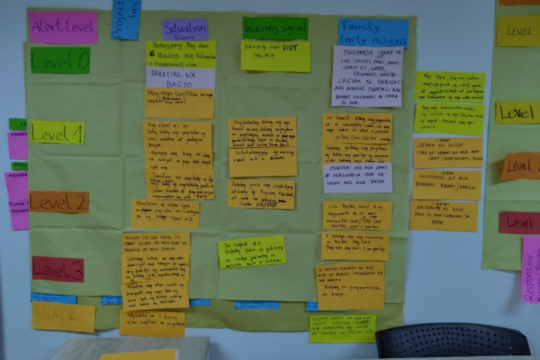At the onset of a crisis, every second counts towards collecting information for vital decision-making and giving feedback to concerned authorities. Since 2012, Cambodian Humanitarian Forum (CHF) conducted training on basic disaster knowledge which developed into training for emergency response in 2014 and emergency assessment in 2016. To maintain these critical skills, Preparedness Partnership of Cambodia (PPC) arranged a Refresher Training on Emergency Assessment from 26-28 March in Siem Reap, Cambodia to help participants gain more knowledge and update the tool for 48-hour emergency assessments. 34 participants representing provincial Emergency Assessment Teams (EAT) and national Emergency Response and Assessment Teams (ERAT) attended.
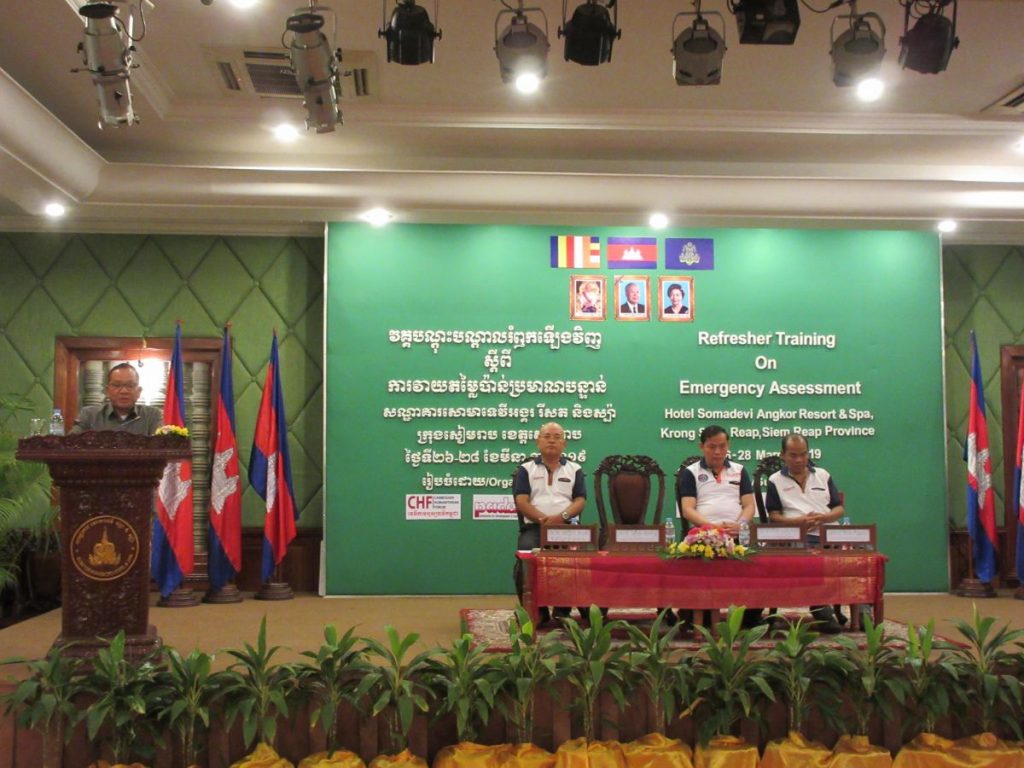
Opening the 3-day workshop, Mr. Kep Kannaro, Executive Director of Partnership for Development in Kampuchea (PADEK) and Chairman of Cambodia Humanitarian Forum (CHF) welcomed participants. With the increase in frequency and severity of disasters experienced in Cambodia, he suggested that CHF and National Committee for Disaster Management (NCDM) must continue to closely work together in preparing communities and minimize losses.
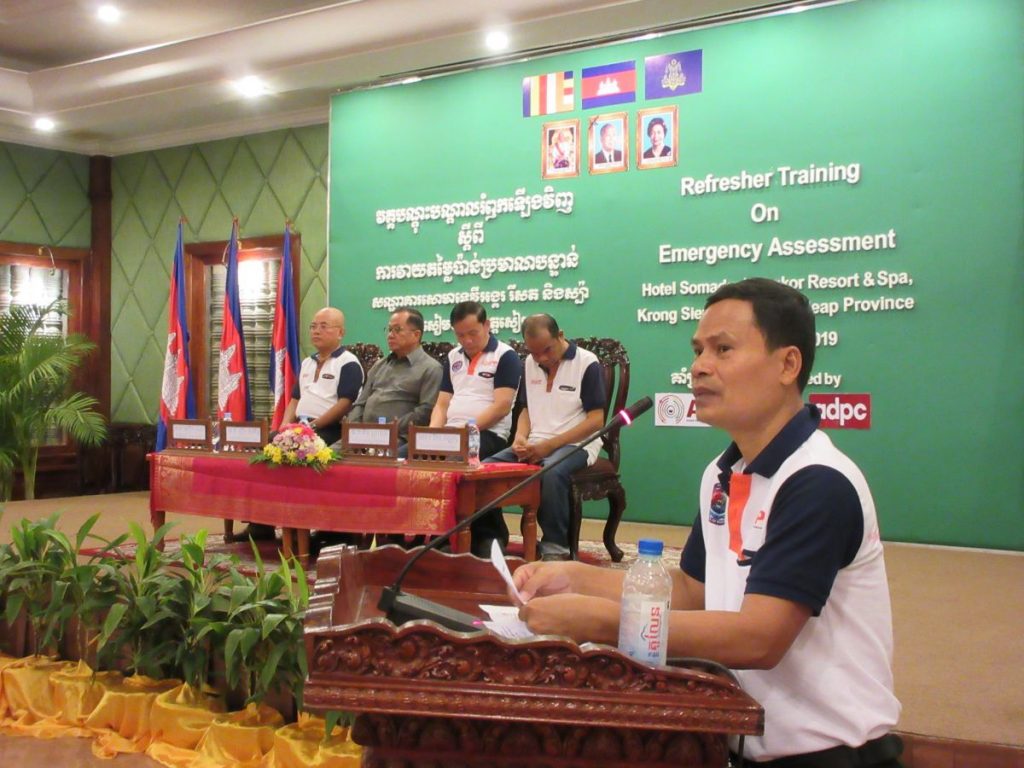
H.E. Mr. Pin Prakod, Deputy Governor of Siem Reap province confirmed that the province has experienced many disasters, and while they are difficult to prevent, residents can prepare for its response. He extended his gratitude to APP for organizing the training, which he believed would affirm participants’ confidence in emergency assessment and response within their areas.
H.E. Nhek Bunrith, Deputy Secretary General of NCDM encouraged participants to focus specifically on flooding and droughts, as the province borders Tonlé Sap Lake which swells and shrinks based on annual rainfall. He indicated that disasters not only put people’s lives at risk, but also cause losses and damage to infrastructure such as schools, hospitals and road that are critical to the province’s development.
Building on each other’s strengths
Phoeuk Sok, Program Manager at ADPC facilitated a brainstorming session based on the different steps of the emergency assessment cycle. Participants’ memories on lessons learnt in emergency assessment helped identify similarities between the two national systems – EAT and ERAT.
Mr. Khun Bunna, Coordinator at PPC explained that the EAT system, comprising of local NGO members across Cambodia, facilitates information sharing with provincial authorities during a disaster situation. Mr. Lorn Trob, Deputy Cabinet Director at NCDM explained that ERAT members are deployed across ASEAN states which have experienced a disaster to monitor the situation and recommend responses. He suggested that while ASEAN Coordinating Centre for Humanitarian Assistance has not yet clarified how it will deploy the members, there was an opportunity for EAT and ERAT members to strengthen their partnership at the national level.
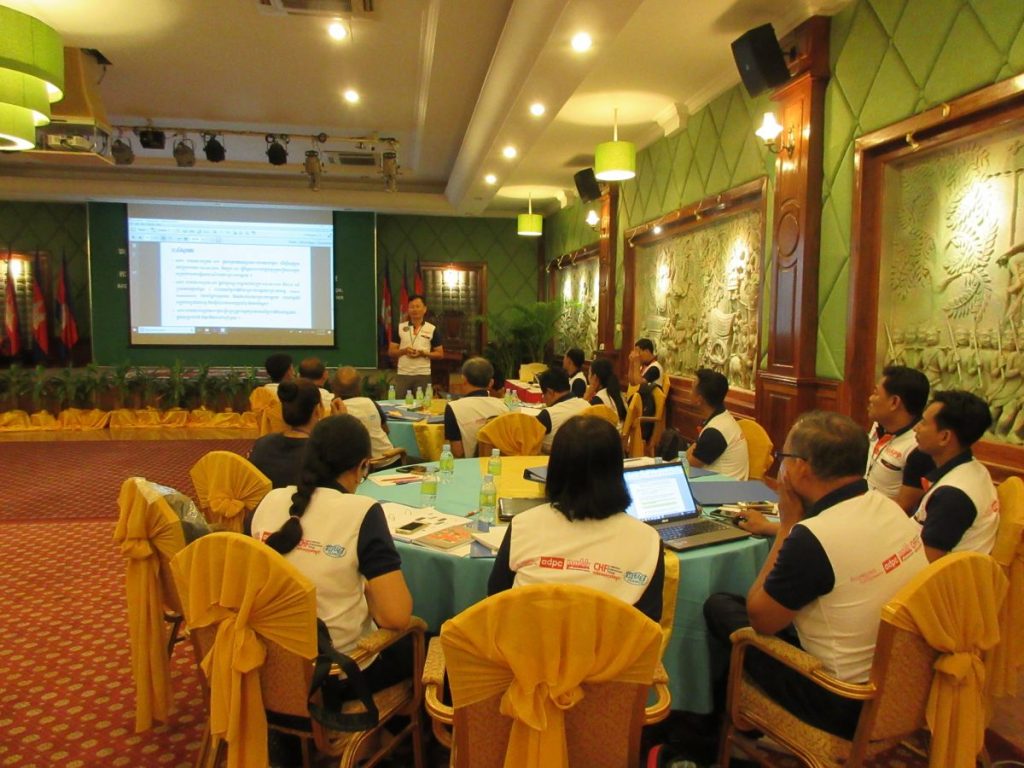
APP’s Practitioner’s Roster, an online pool of local experts (currently being developed) to facilitate the identification of qualified experts within program countries to support disaster activities, was presented by Mr. Bunna. Registrations would start with PPC, EAT and ERAT members and later expand to include other individuals and organizations in the future. A list of interested volunteers is currently being developed for Cambodia.
Applying their skills through disaster simulations
The second day tested participants’ abilities to identify a disaster situation as well as a humanitarian action plan based on a simulation exercise. Mr. Srei Kosal, Program Manager at PADEK presented the 2018 floods in Stung Treng as a case study for the EAT and ERAT members to gather information, conduct interviews and create a findings report.
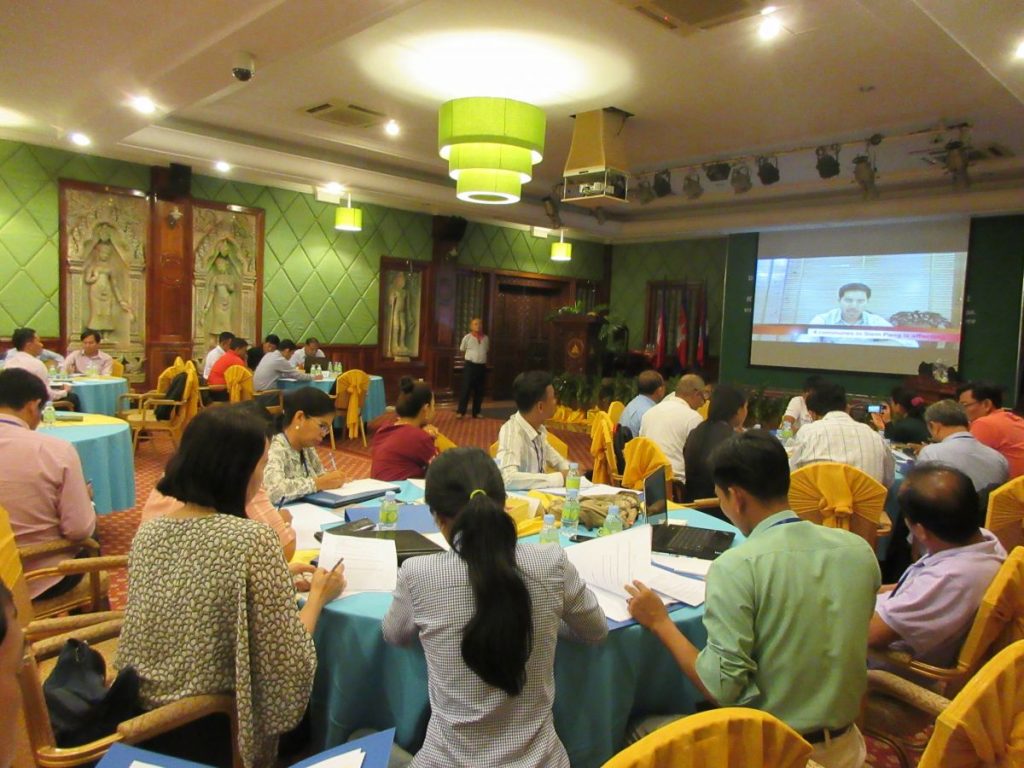
Participants were divided into 4 groups and instructed to listen to a news broadcast of the situation. They then had to collect secondary data from one of the 4 facilitators to prepare for interviews and write an emergency findings report. During the assessment process, Mr. Bunna encouraged the participants to adopt a community approach to get an in-depth understanding of the situation and develop an appropriate emergency response.
Through the findings, the groups shared that the flood incident was responsible for multiple civilian deaths which meant the needs of vulnerable population groups should be prioritized. Furthermore, participants also determined that the province’s food security and people’s occupations had been negatively affected.
PPC, the national platform formalized under APP, works towards improving preparedness for response and recovery from disasters in Cambodia. It comprises of member organizations from the National Committee for Disaster Management (NCDM), Federation of Associations for SMEs in Cambodia (FASMEC) and the local humanitarian network – Cambodia Humanitarian Forum (CHF).
